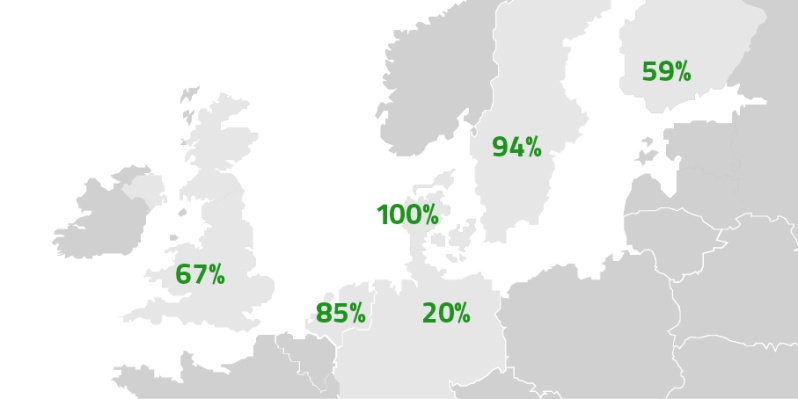Primary benefits when the EU invests in treating organic waste with biogas technology

Follow the leader
Denmark has scaled up its production of biogas and biomethane faster than any other EU member state. By recycling large quantities of farm waste 1/3 of natural gas consumption is now replaced with biomethane (US:RNG)
Ole Hvelplund, CEO of market leading producer Nature Energy claims that with full political support, Denmark could reach 100% in the grid by 2027. The EU Commission wants to support such development in all member states.
With increased national production of biogas and biomethane comes:
1. Less dependency of countries you are at present importing energy from
In the same way farms producing their own electricity, heat or biomethane for vehicles no longer need to negotiate with utilities, a country increasing its national energy production can act more independently.
2. the country´s exposure to increasing prices of imported energy is reduced
Rising prices on natural gas, petrol and diesel in Europe during 2022 has clearly shown how national prices are linked to the international price level.
3. strengthened economy with less money leaving the country
Denmark has calculated the monetary value of its biomethane production during the eights first months of 2022 to USD 500 million. Millions staying in the country´s economy istead of leaving the country payning for imported gas.
4. Reduced exposure to shortages and threats of compromised supply
Again, the metafor with a farm producing biogas from its own waste. When Hagelsrums Biogas produces vehicle fuel for the fueling stations in Eksjö, Vimmerby, Hultsfred, Högsby and Målilla some of the transports in these cities can operate regardless of supply of petrol or diesel. The same goes for a country. The more energy a country produces the less exposed it becomes to fluctuations in supply of imported energy.



